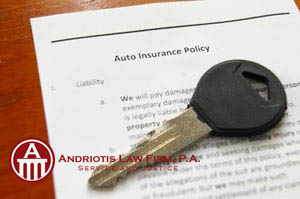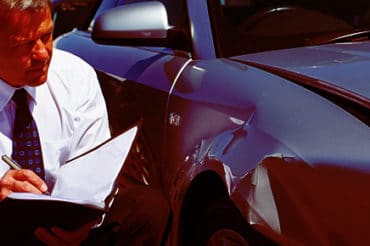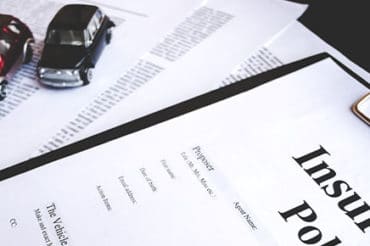

When talking about car insurance, it’s helpful to know a few key terms such as Actual Cash Value (ACV), deductible, and salvage value. We’ll talk about each of them in a moment. If you’ve been in any kind of auto accident, your vehicle has probably suffered some degree of body damage. You may be wondering if your car is a complete wreck. Is it worth it to have it repaired?
Here’s where the ACV comes in.
The price you’ve paid on your premiums is a function of the actual cash value of the car and if the vehicle is damaged in any way, that value is affected. If the cost to repair the car exceeds the ACV, your insurance company will probably declare the car a “total” loss. They’ll offer to pay you the ACV minus your policy’s deductible, and then take possession of the car. If you wish to keep the car and perhaps have it repaired yourself, you can still keep the ACV payment, but the salvage value of the vehicle will now also be deducted, as the company can’t sell the car to a salvage yard for parts.
So how is the ACV determined, and is it debatable?
ACV is determined using standard methods like the Kelley Blue Book, price surveys from dealers who sell similar models, and prices that similar cars have sold for online. Other costs such as taxes and registration fees may also be included or excluded from the valuation, depending on the company.
While a car’s ACV is determined by the insurance company at the time your policy is drawn up, a third-party appraisal company is brought in to assess the vehicle’s value after an accident. The estimated value of the damage to the vehicle is the difference between these two numbers, and this is often used as an upper limit on how much the insurance company is willing to pay for repairs.
If you disagree with either the ACV or the appraisal, there’s good news: you have options. You can dispute either number by providing documentation to support what you believe the car is worth – the same type of market research that they did is just fine. If the insurance company still won’t budge, you can utilize the Appraisal Clause in your policy, which usually provides that you and your insurer each hire your own appraiser. In the event of a disagreement, there, a third “referee” appraiser is hired to help reach the decision.
SOURCES:
http://www.autoloss.com/Services/Online-Auto-Appraisals/Diminished-Value-The-biggest-secret-in-the-insurance-industry.html
http://www.ehow.com/how-does_5707672_do-companies-determine-car-value_.html
http://www.autoinsurancetips.com/actual-cash-value-how-auto-insuranance-companies-determine-value-your-damaged-car



